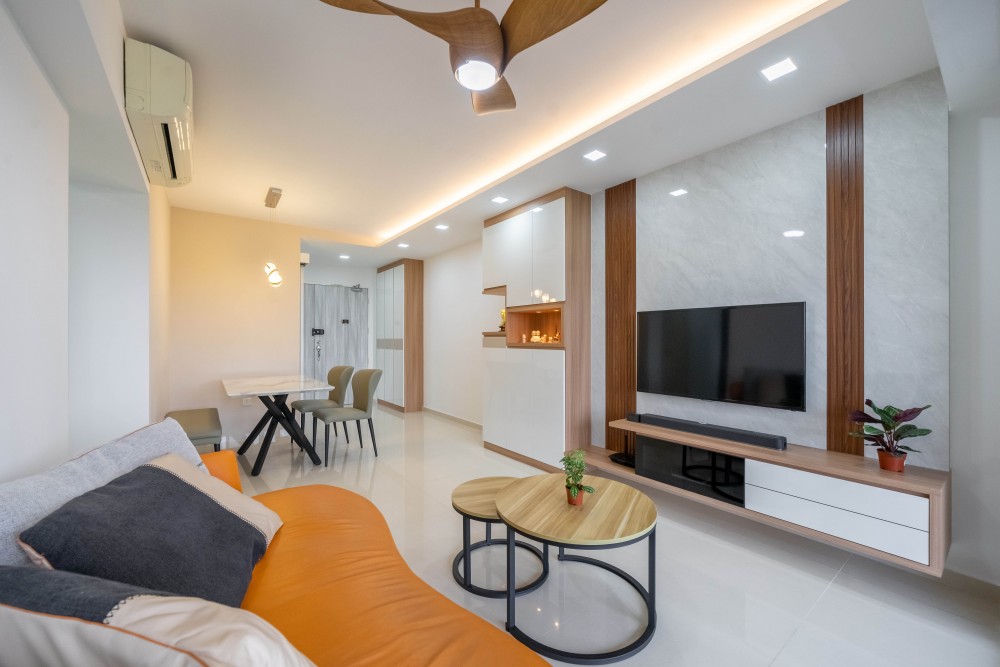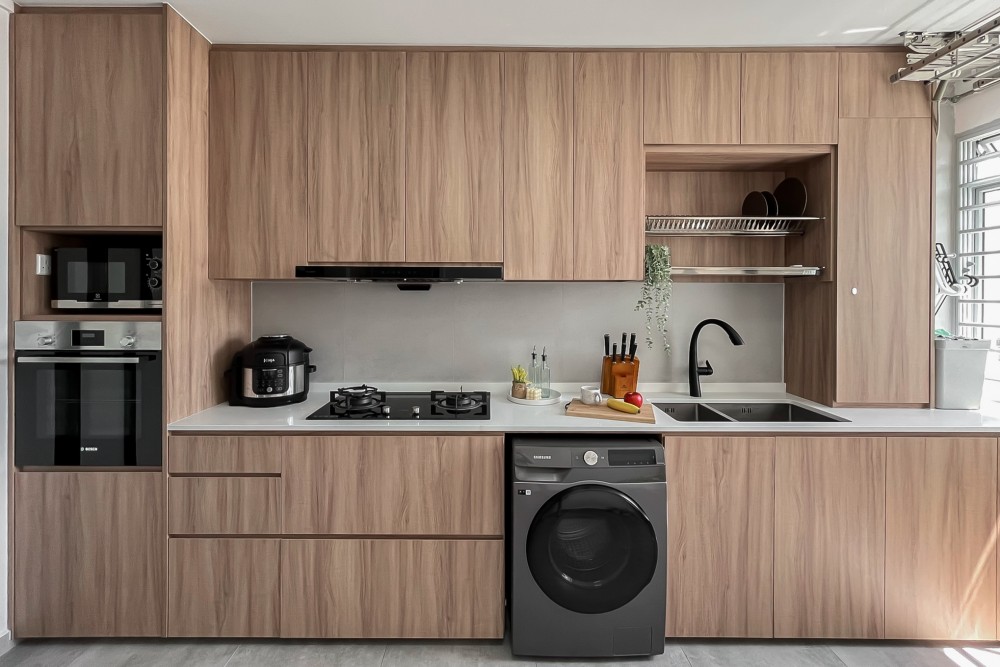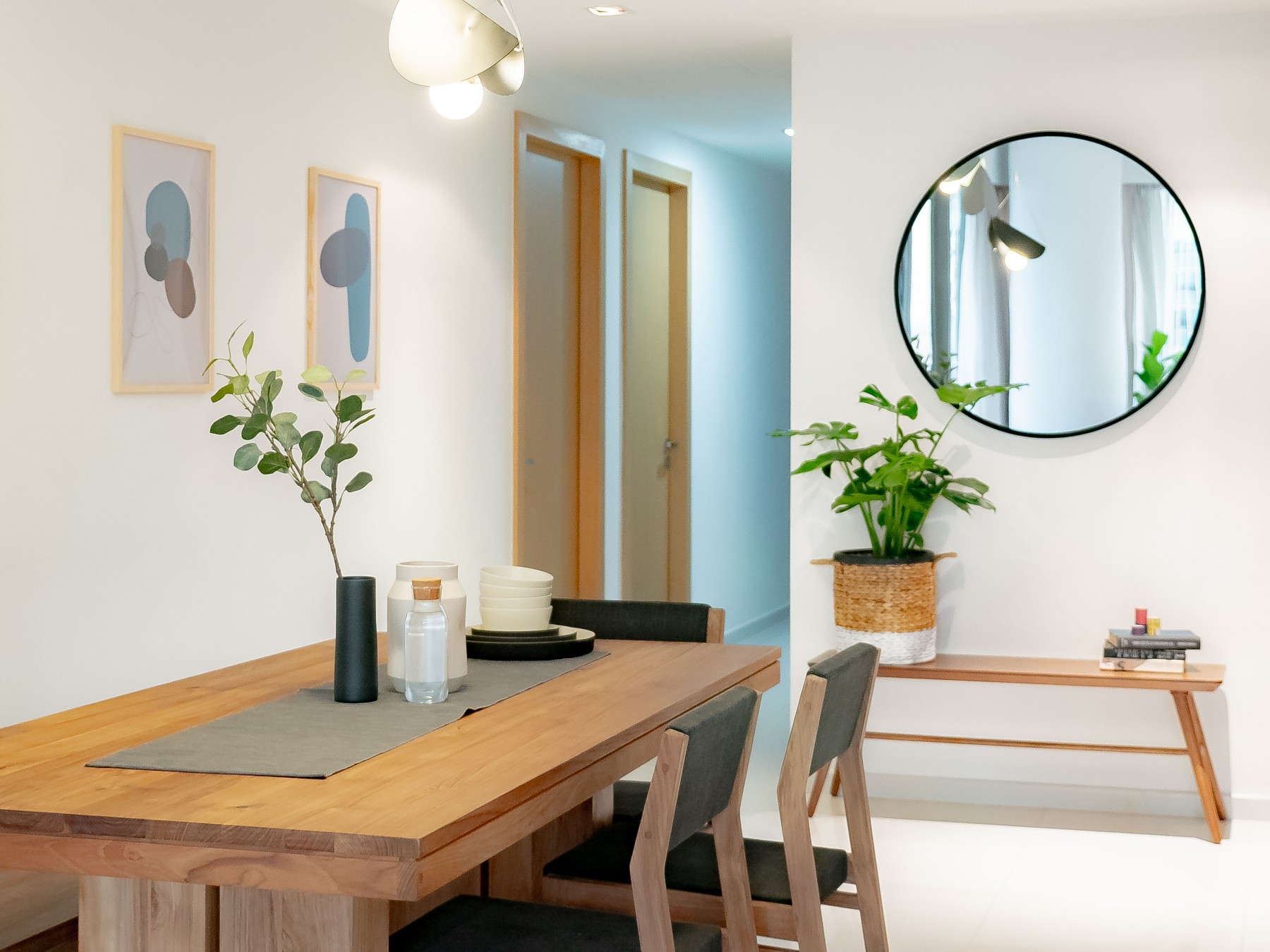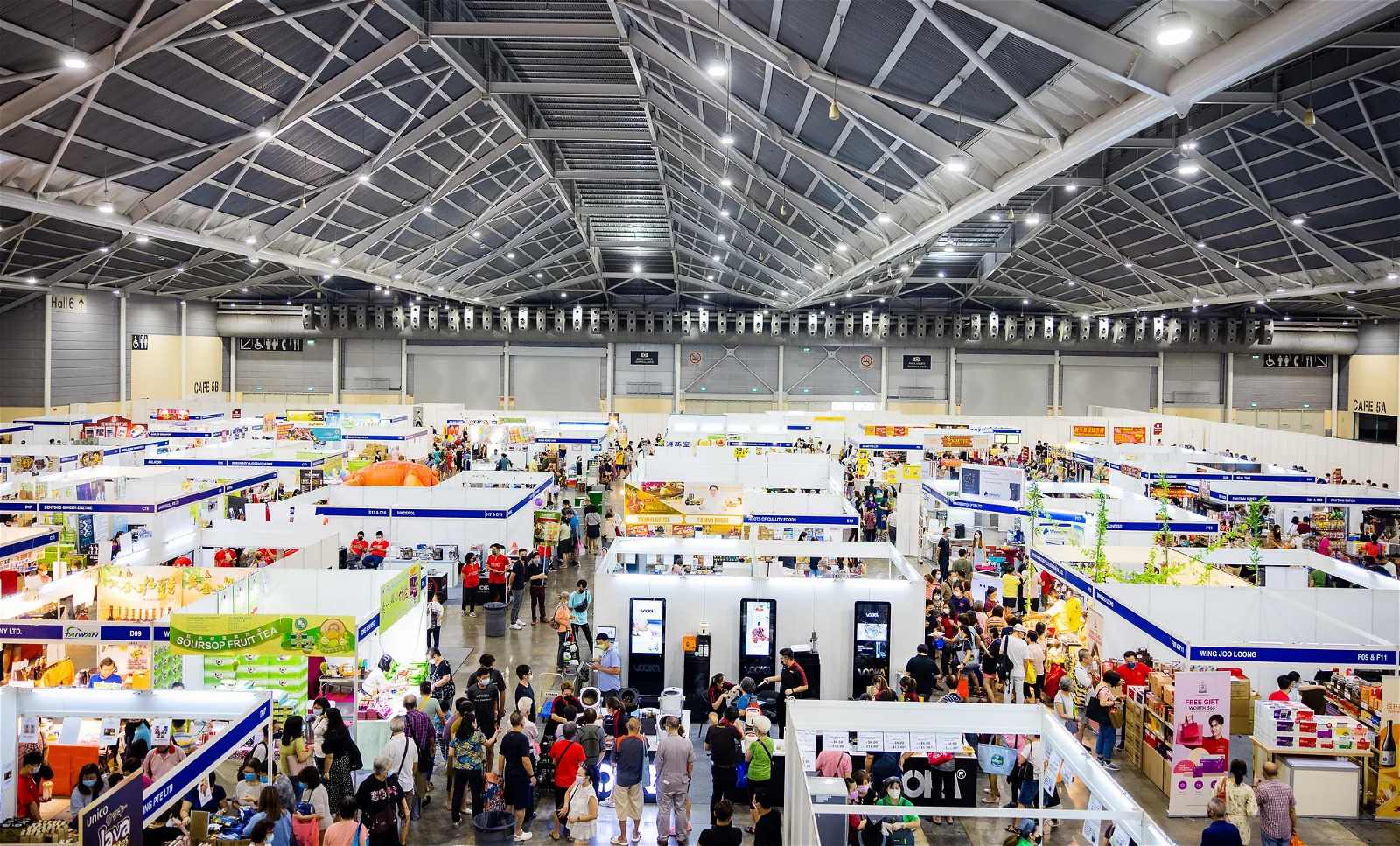The Ultimate Guide to Feng Shui: How to Design Your Home Using Feng Shui
Unless you’ve been living under a rock, you’ve probably heard of feng shui before.
In a nutshell, feng shui is an ancient practice that aims to create a harmonious and balanced environment.
This practice has become increasingly popular in recent years, with many people turning to feng shui to help them design and decorate their homes.
In this article, we will explore the importance of feng shui in home design and layout, and provide tips and tricks for creating a harmonious and balanced living space.
Choosing A Feng Shui Home
Are you a homeowner-to-be?
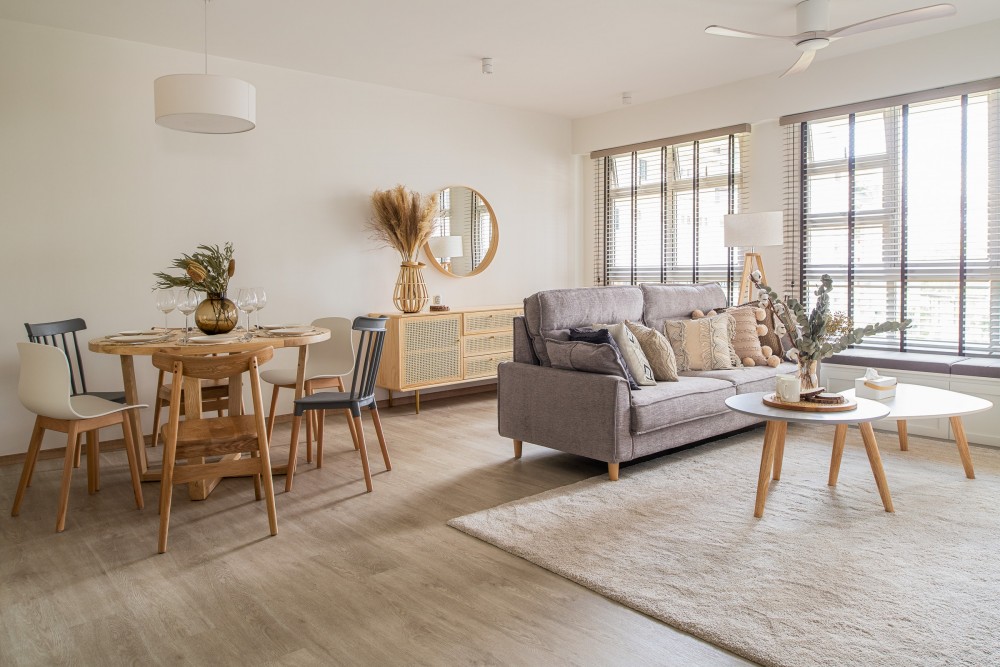

AMK Court ($95,000) by Mr Shopper Studio
In Singapore, there are plenty of things to consider when buying a home – this includes the location, the proximity to MRT stations, and for those BTO-ing, how many available units there are 😉
But that aside, feng shui believers will also advocate for looking at the feng shui of a space before buying it.
Certain features and layouts can have a negative impact on the flow of energy and create disharmony in the space. More specifically:
- Avoid homes with a main door directly facing a staircase or elevator, as this can result in negative energy rushing into the home.
- Avoid homes situated near busy roads or noisy areas. Look for homes with a clear view of the sky and natural surroundings.
- Look for homes with ample natural light and good air circulation, as this promotes positive energy flow.
- Look for a home with a functional and balanced layout. Avoid homes with narrow hallways or rooms that are too small or too big.
- The main door is the primary entry point for qi flow. Choose a home with a spacious and well-lit entrance that is not blocked by obstacles.
- Avoid homes with a main door facing a sharp corner or edge, as this can create sha qi (negative energy).
Updating Your Home For Feng Shui
If you have already bought a house but realised that its feng shui is not optimal, there are still things you can do to improve it. Here are some tips:
First, rearrange your furniture.


Sometimes, simply rearranging your furniture can help to create better feng shui in your home. For example, you could move your sofa so that it faces the entrance to your living room, which is said to help improve the flow of energy through your space.
Next, use mirrors.
Mirrors can be a powerful tool in feng shui, as they reflect and amplify energy. You could hang a mirror in a dark or cramped space to make it feel more open and spacious, or place a mirror in your entryway to help bring positive energy into your home.
Next, consider getting custom-built furniture.
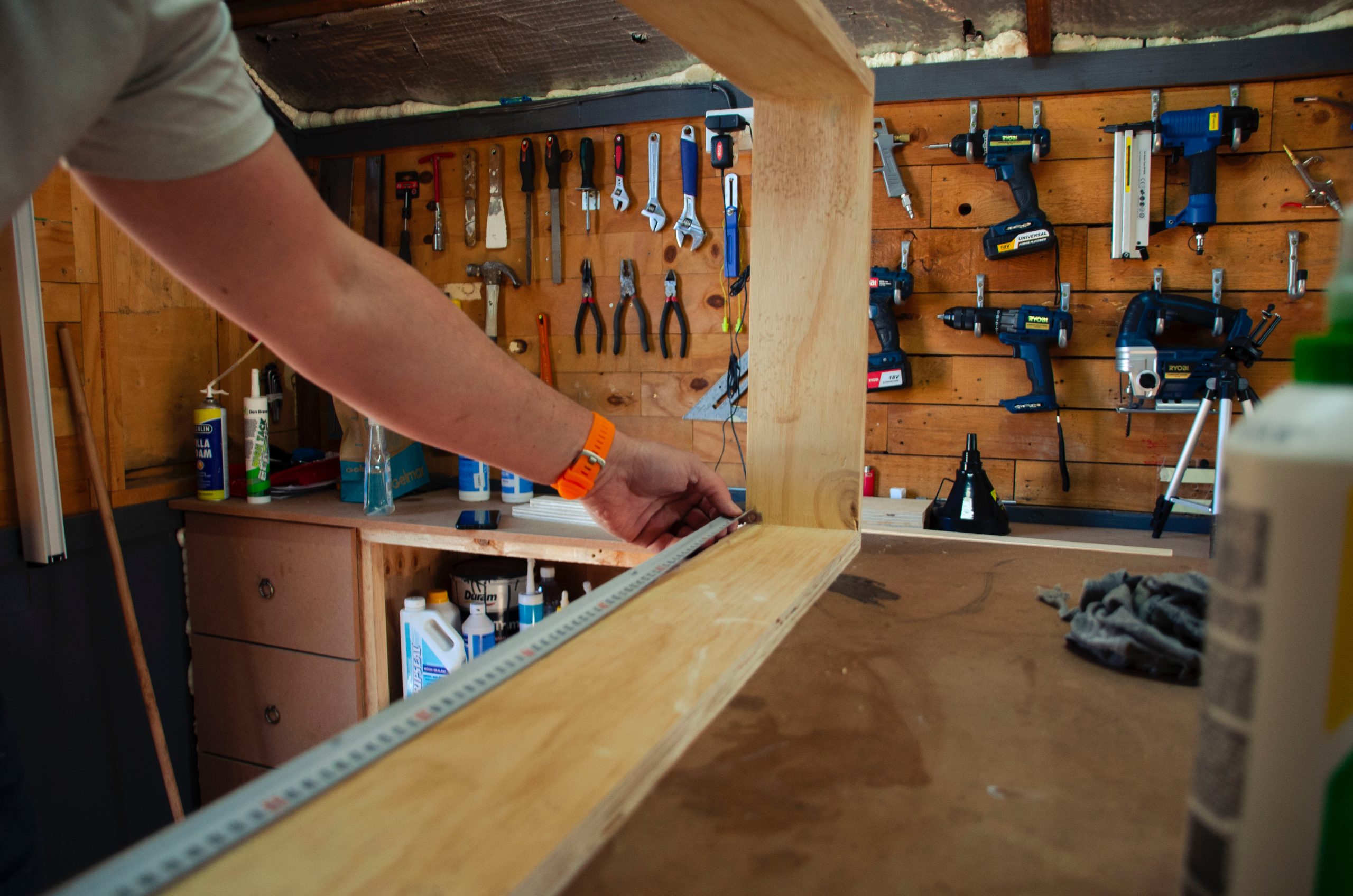

You can use interior design and carpentry services to create custom-built furniture that aligns with feng shui principles. For example, you could create a bed frame that is elevated off the ground to help improve the flow of energy in your bedroom, or a custom-built bookshelf that is designed to create a sense of balance and harmony in your living room.
Finally, you may choose to hack your walls.
This one is a bigger-effort project and will take some time and money, but if your home has walls that are blocking the flow of energy, you may want to consider hacking them to create a more open and flowing space.
Here, you could either remove a wall entirely, or create a half-wall or partial opening to help improve the flow of energy.
Remember, even small changes can have a big impact on the energy in your home. By taking steps to improve your home’s feng shui, you can create a space that feels more harmonious and balanced.
Feng Shui Principles For Home Design
Understanding the principles of feng shui is crucial for creating a harmonious and balanced living space. Here are some key concepts to keep in mind:
- The Bagua map
- The five elements
- Colours
- Furniture placement
The Bagua map
The Bagua map is an important tool in feng shui that helps you understand the energy flow of your home.
If you haven’t seen this before, it’s essentially an octagonal grid that maps out the different areas of your home and the corresponding life areas they represent.
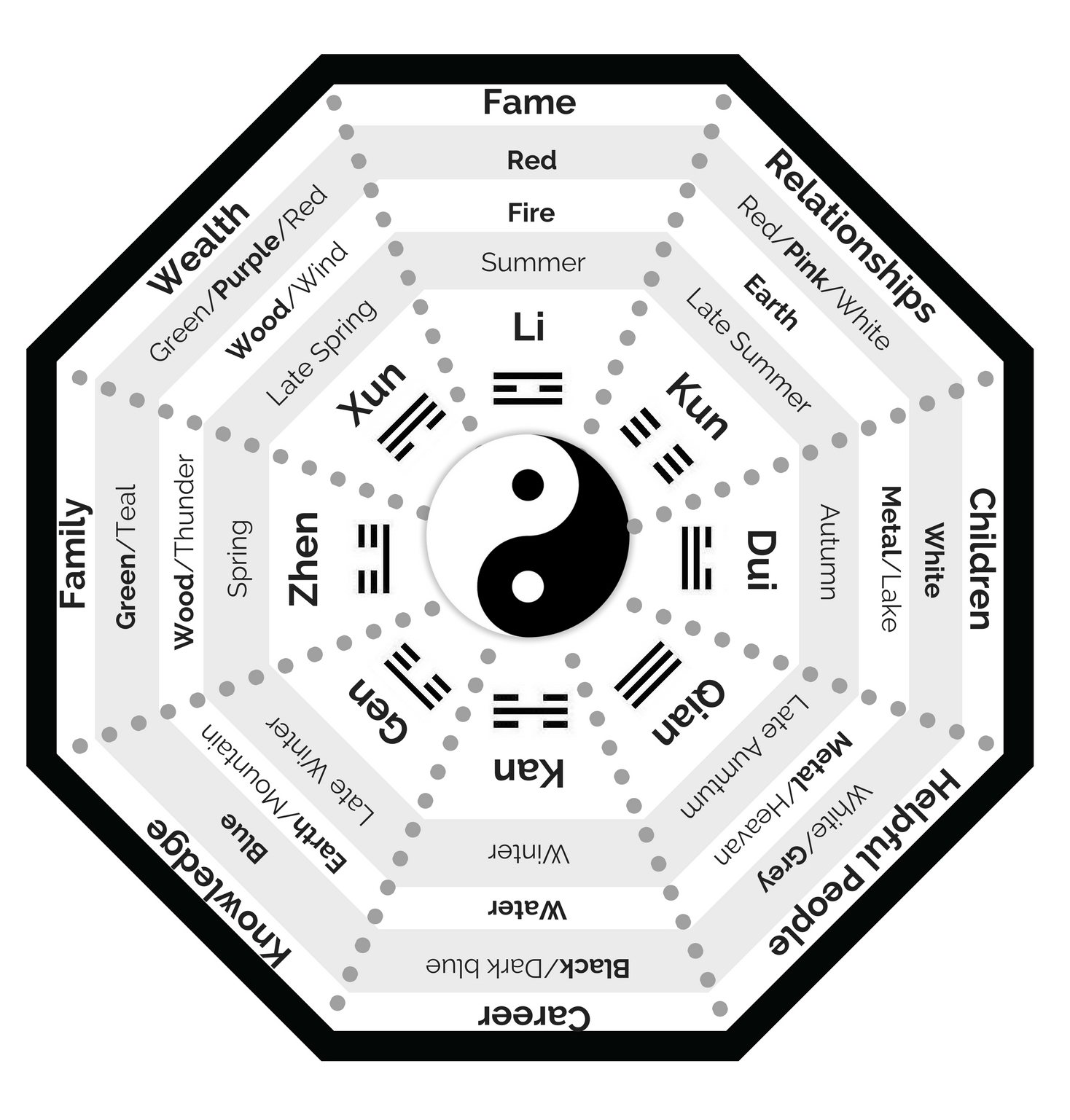

The Bagua map can help you determine which areas of your home need attention and how to enhance the flow of energy in those areas.
The five elements
The five elements in feng shui are wood, fire, earth, metal, and water.


Each element has its own unique properties and qualities, and they are believed to interact with each other in various ways to create balance and harmony:
- Wood: Represents growth, expansion, and vitality. It is associated with the color green and is linked to the spring season. In feng shui, wood is often used to promote health, creativity, and abundance.
- Fire: Represents passion, energy, and transformation. It is associated with the color red and is linked to the summer season. In feng shui, fire is often used to promote success, recognition, and fame.
- Earth: Represents stability, grounding, and nourishment. It is associated with the color yellow and is linked to the late summer season. In feng shui, earth is often used to promote balance, harmony, and good relationships.
- Metal: Represents clarity, precision, and efficiency. It is associated with the color white and is linked to the autumn season. In feng shui, metal is often used to promote focus, organization, and financial success.
- Water: Represents flow, flexibility, and adaptability. It is associated with the color black and is linked to the winter season. In feng shui, water is often used to promote relaxation, intuition, and career success.
The five elements can be used to enhance different areas of your home and create a harmonious environment.
Colours
Colors play a significant role in feng shui, as they are believed to have a direct impact on our emotions and energy levels.
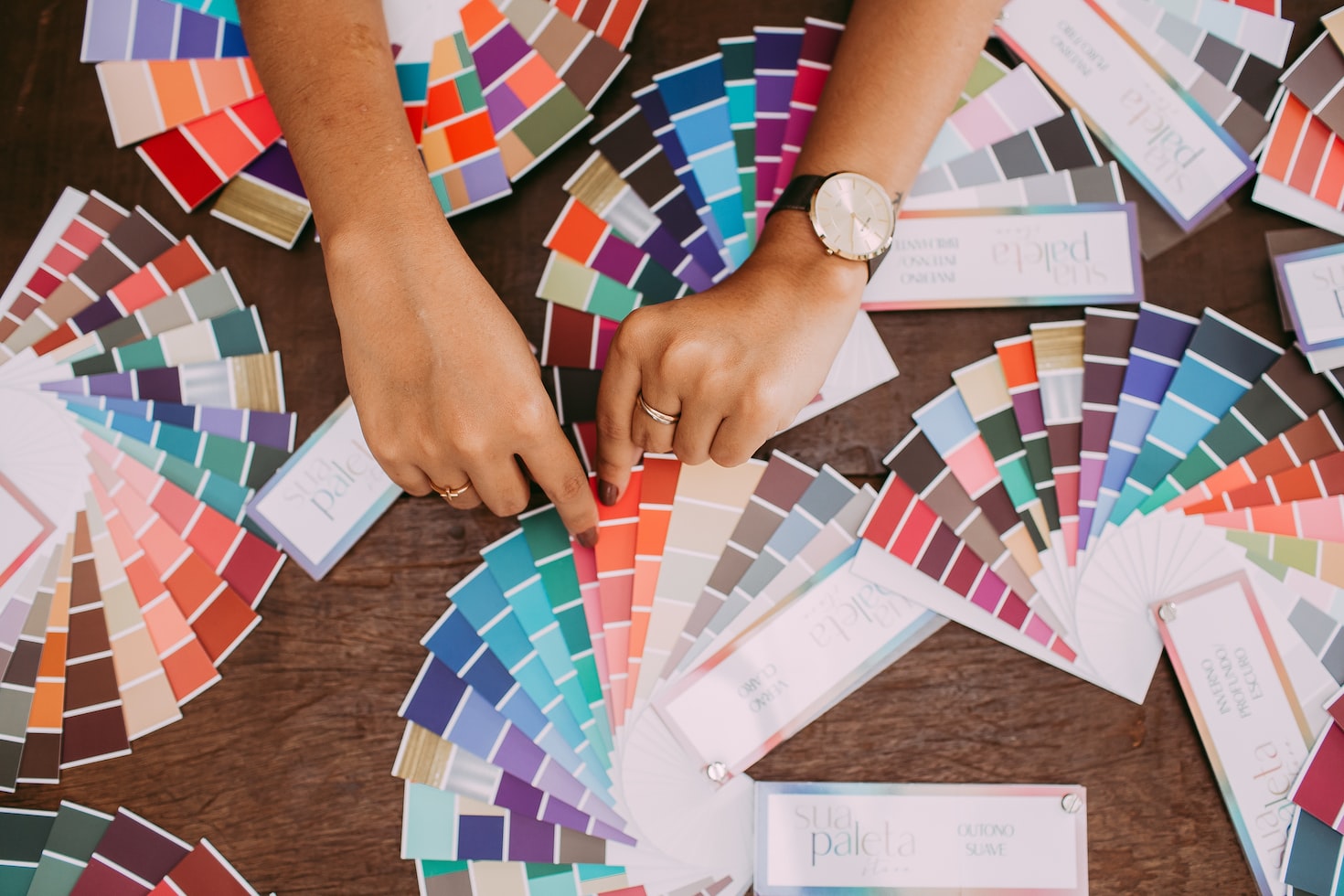

Different colors can be used to enhance different areas of your home, and it’s important to choose colors that align with your personal preferences and the feng shui principles.
Here are some of the common associations to keep in mind:
- Red – the color of fire and passion, red is associated with good fortune, energy, and happiness. It is often used in feng shui to attract wealth and success.
- Orange – another color associated with fire, orange is thought to represent joy, warmth, and enthusiasm. It is believed to promote creativity and boost your mood.
- Yellow – the color of sunshine, yellow is associated with intellect, clarity, and energy. It is believed to promote mental clarity and help with decision-making.
- Green – the color of nature and growth, green is associated with balance, harmony, and vitality. It is often used in feng shui to promote health and prosperity.
- Blue – the color of water, blue is associated with calmness, peace, and tranquility. It is believed to promote relaxation and improve communication.
- Purple – the color of royalty and luxury, purple is associated with wealth, power, and creativity. It is often used in feng shui to promote prosperity and abundance.
- Black – the color of mystery and sophistication, black is associated with power, depth, and elegance. It is often used in feng shui to represent the water element and is believed to promote career success.
- White – the color of purity and clarity, white is associated with cleanliness, clarity, and new beginnings. It is often used in feng shui to represent the metal element and is believed to promote mental clarity and fresh starts.
Furniture placement
Furniture placement is an essential aspect of feng shui, as it determines the flow of energy in your home.
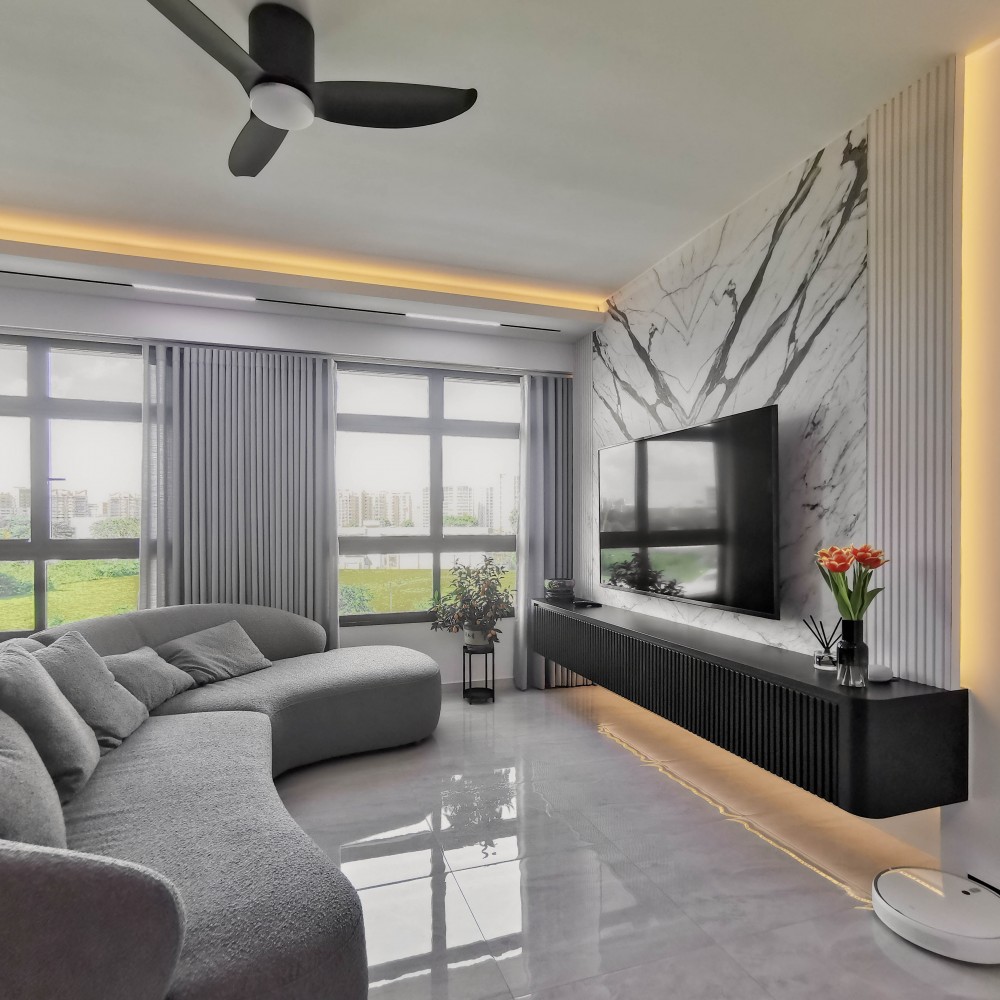

Tampines Greendew ($70,000) by Elysian Design Studio
The goal is to create a harmonious and balanced environment by placing furniture in the correct locations and arrangements. This involves avoiding sharp corners and edges, positioning furniture to promote the flow of energy, and arranging furniture to encourage social interaction and relaxation.
PS: You know how curved furniture and curved edges are currently trending in the world of interior design world? What’s cool is that this trend also aligns with feng shui principles, as rounded edges create a more gentle flow of energy in a space!
Common Feng Shui Design Mistakes To Avoid
Now that you’re familiar with the main feng shui principles, let’s discuss some common feng shui design mistakes.
- Clutter: Cluttered spaces can block the flow of positive energy and create stress and tension. Avoid hoarding and keep your home organized and tidy.
- Dark or poorly lit spaces: Insufficient lighting can make a space feel dull and stagnant, and negatively impact your mood. Ensure that your home is well-lit and open up your curtains and blinds to let in natural light.
- Overcrowding: Overcrowding a space can create a feeling of claustrophobia, and hinder the flow of energy. Make sure that your furniture is arranged in a way that is functional but allows for enough open space.
- Ignoring the entrance: The entrance to your home is the first point of contact for positive energy to flow in. Ensure that the entrance is well-lit, clean, and welcoming, and avoid cluttering it with unnecessary items.
- (The improper usage of) mirrors: Yes, we just talked about how mirrors can be a powerful tool in feng shui, but when used improperly, they can create negative energy. Avoid placing mirrors opposite to the entrance or bedroom doors, and be careful not to reflect any negative images or clutter.
Feng Shui For Bedrooms
The bedroom is one of the most important areas of the home when it comes to feng shui. After all, it’s where we spend a significant amount of time resting and recharging!
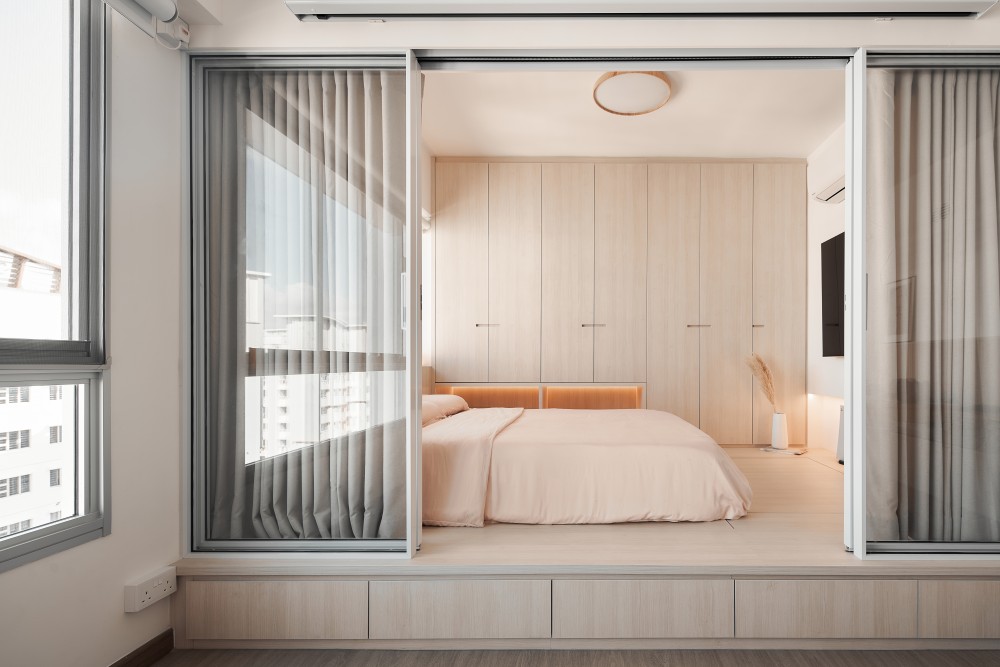

781C Woodland Ave 9 ($52,039) by Starry Homestead Pte Ltd
Here are some feng shui tips for the bedroom:
First, choose a suitable bed placement.
The bed should be placed in a commanding position, which means that you should have a clear view of the door, but not be directly in line with it. This helps you feel safe and secure while you sleep.
Next, harmonise the colours in your bedroom.
As we discussed earlier, each color is associated with a different element and energy in the world of feng shui.
Here, choose colors that correspond with the energy you want to create in your bedroom. Soft, muted colors such as beige, peach, or light green promote a peaceful and calming energy, while red and bright colors should be used sparingly as they can be too stimulating and disruptive.
On top of this, be sure to balance the lighting in your bedroom.
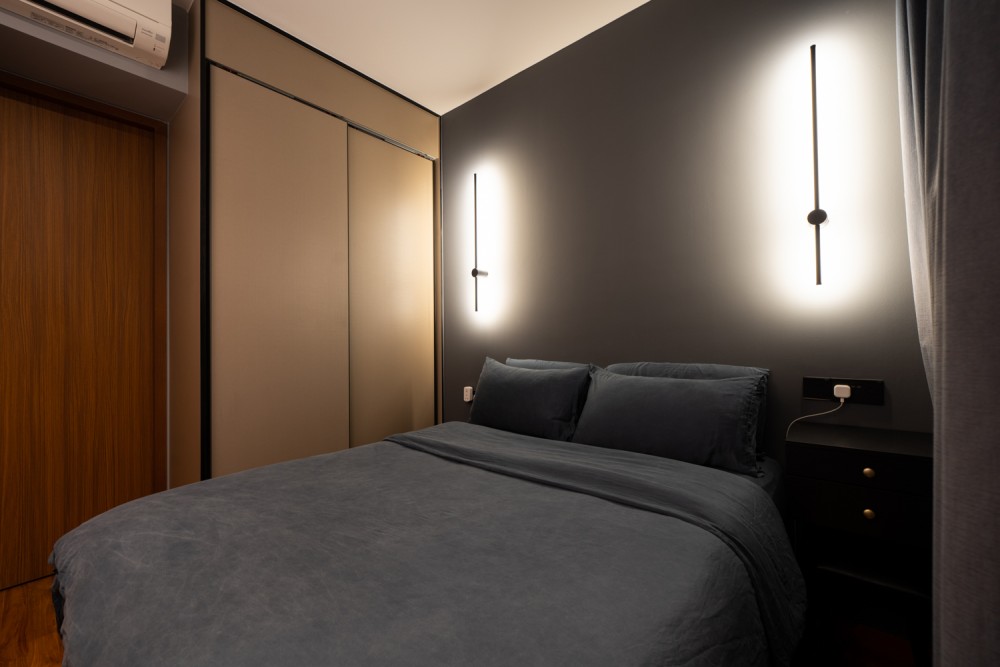

Stirling Residence ($11,000) by Areana Creation Pte Ltd
In feng shui, lighting plays a crucial role in creating a harmonious atmosphere. Use a combination of lighting sources, such as soft bedside lamps and dimmer switches, to balance the energy in the room.
Avoid harsh, overhead lighting as it can create excessive yang energy and disrupt the natural flow of energy in the room.
Next, choose high-quality bedding.
Here’s a fun fact: in feng shui, the bed is considered the most important piece of furniture in the bedroom as it represents the foundation of your energy.
With this in mind, invest in high-quality bedding that feels comfortable and supportive, as this will promote a restful and rejuvenating sleep. Choose bedding in soothing colors that complement the energy you want to create in the room.
Finally, minimise the use of electronics in your bedroom.
In feng shui, electronics emit electromagnetic fields that can disrupt the flow of energy in the bedroom and interfere with sleep.
As such, keep electronic devices such as televisions, computers, and cell phones out of the bedroom or at least away from the bed to promote a restful and restorative sleep.
Feng Shui For Kitchens
You know what they say – the kitchen is the heart of the home.
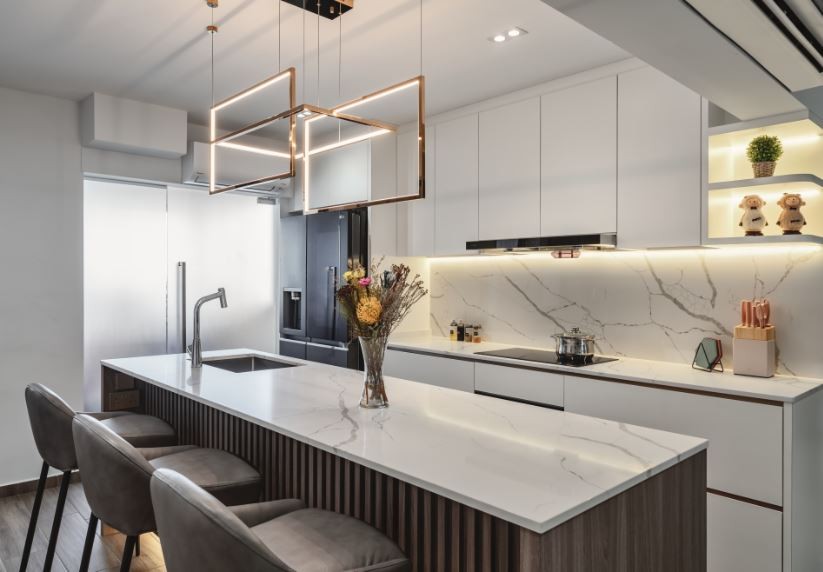

773 Bedok Reservoir View ($50,000) by Weiken.com Design Pte Ltd
Want to improve the feng shui in your kitchen? Here are some tips:
Firstly, balance the elements in the kitchen.
Like we’ve discussed, feng shui emphasizes the importance of balancing the five elements (wood, fire, earth, metal, and water) in a space.
In the kitchen, you can achieve this by incorporating natural materials such as wood cutting boards, metal cookware, earthy stone countertops, and a bowl of fresh water or a small fountain.
Next, position the stove in a commanding position.
Just like how the bed is the most important object in the bedroom, the stove takes centrestage in the kitchen!
Remember, the stove represents wealth and prosperity in feng shui.
To enhance this energy, position the stove in a commanding position where the cook can see the entrance to the kitchen. This will also promote a feeling of control and security while cooking.
Next, keep the kitchen well-lit.
Bright lighting in the kitchen promotes positive energy flow and helps to create a welcoming atmosphere. Use warm, natural light whenever possible, and consider adding under-cabinet lighting to brighten dark corners.
Lastly, keep the kitchen well-ventilated.
Good air circulation promotes positive energy flow and helps to remove any stagnant or negative energy from the space. Use a range hood or open a window when cooking to ensure proper ventilation.
Feng Shui For Living Rooms
The living room is where everyone gathers, hangs out, and bonds as a family.
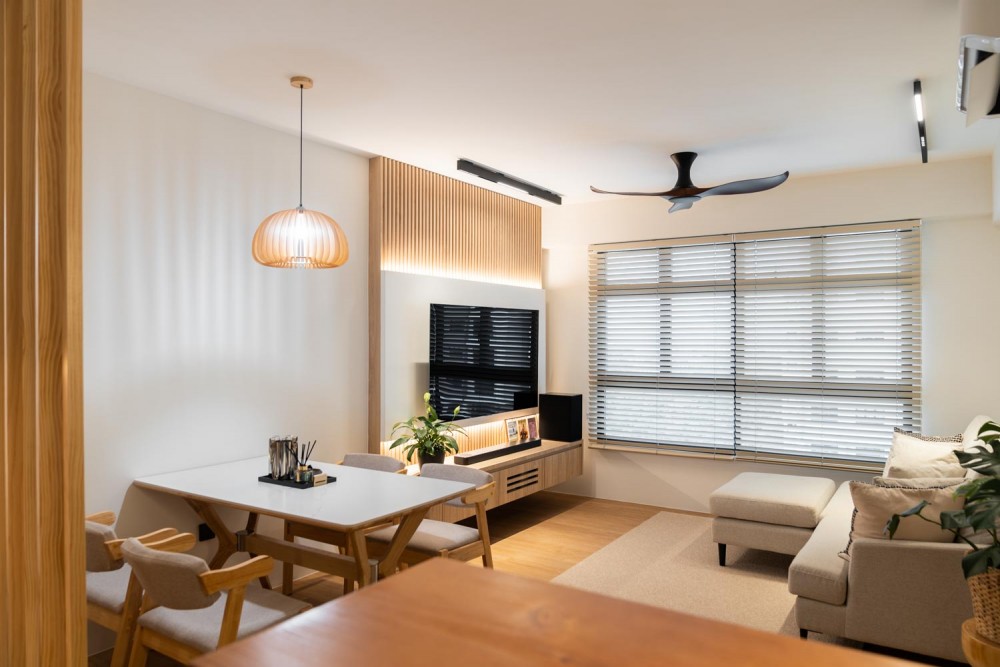

411 Northshore Drive ($50,000) by Dots ‘N’ Tots Interior Pte Ltd
Follow these tips to improve the feng shui of your living room:
Firstly, create a welcoming and comfortable seating arrangement.
The living room is a space for relaxation and socialising, so it’s important to create a comfortable seating area that encourages conversation and relaxation. Arrange furniture in a circular or semicircular layout to promote positive energy flow and allow for easy conversation.
Next, choose a color scheme that promotes relaxation and harmony.
Feng shui suggests using calming, earthy colors in the living room, such as beige, cream, or warm shades of brown.
If you love colour, it’s perfectly fine to incorporate pops of colour with accent pillows or artwork, but avoid using too many bold or bright colors.
Next, incorporate natural elements.
Bringing natural elements into the living room can help to balance the energy and promote a sense of calm. You can do this by adding plants, natural wood furniture or accents, and soft fabrics such as cotton or wool.
Last but not least, balance the elements.
As with the kitchen, feng shui emphasizes the importance of balancing the five elements in the living room. You can achieve this by incorporating objects that represent each element.
For example, use a water feature or aquarium to represent water, candles or a fireplace to represent fire, earthy accents for earth, metal decor for metal, and wood accents for wood.
Feng Shui For Bathrooms
Bathrooms are another area of the home that can greatly benefit from feng shui principles.
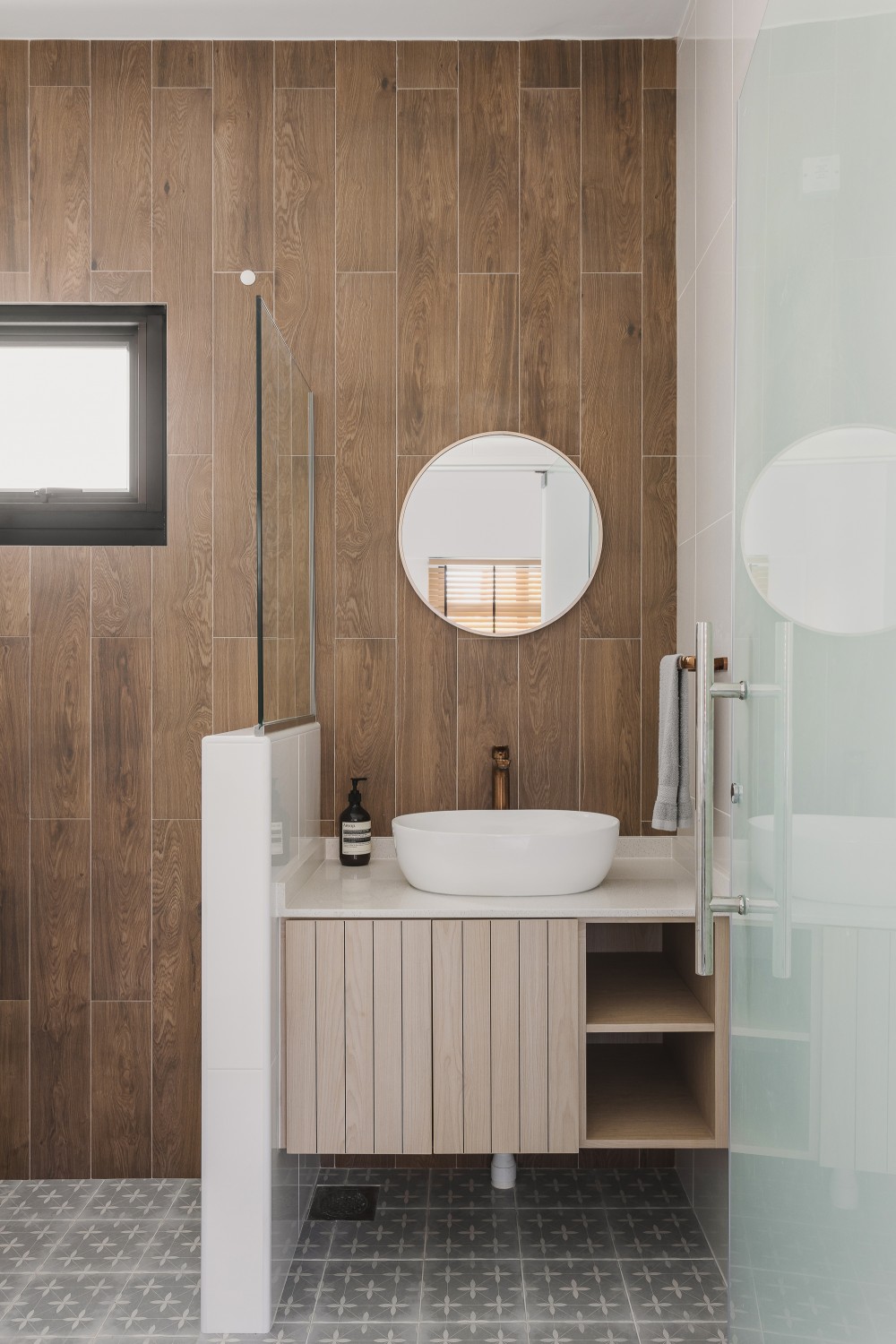

114B Alkaff Crescent ($30,000) by The Interior Lab Pte Ltd
To promote good health and wealth, it’s important to keep your bathroom clean, bright, and well-ventilated. Here are some feng shui tips for your bathroom:
First, keep the toilet lid down when not in use to prevent negative energy from flowing out.
No more toilet seat up, toilet seat down arguments – according to fengshui, it should be down! 😉
Also, fix any leaks or plumbing issues promptly to prevent stagnant energy and negative impact on wealth.
Finally, keep your mirrors clean and in good condition to promote positive energy flow, and add plants or natural elements like bamboo or stones to bring in positive energy.
Feng Shui For Home Offices
If you work from home, your home office is an essential area to consider when it comes to feng shui.
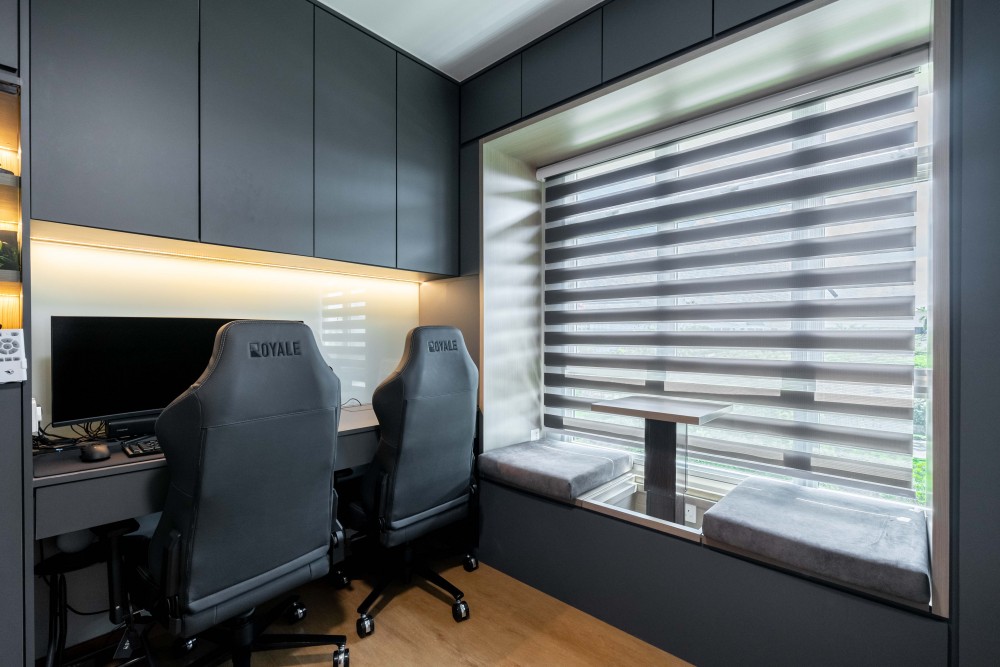

Sembawang | East Delta ($38,000) by Design 4 Space Pte Ltd
Here are some tips for creating a productive and inspiring workspace:
Firstly, choose a room with natural light and good air circulation. This promote positive chi, or energy, flow through the space.
Next, position your desk so that you have a clear view of the door and windows, but not directly in line with them.
This arrangement allows you to feel more in control of your space and surroundings, and it also prevents negative energy from flowing directly towards you. The goal is to create a sense of stability and control in your workspace.
Next, incorporate the five elements into your decor, such as a small fountain or plant for the water element, a crystal for the earth element, or a candle for the fire element. Here, you want to make use of the five elements to create a harmonious and balanced workspace.
Next, keep your workspace clean and clutter-free to promote clear thinking and productivity. Again, this is about creating a positive and uplifting environment that promotes good energy flow.
A Final Word On Designing Your Home Using Feng Shui
To feng shui believers, incorporating feng shui principles into your home design and layout can greatly improve the energy flow and create a more harmonious living space.
From choosing the right apartment or home to updating your existing space, there are many ways to apply feng shui principles to your home.
We hope you’ve found these tips useful – all the best in creating a balanced, fengshui-optimised home!
Want to check out home renovation projects for more inspiration? Browse interior design ideas on Hometrust, or click the button below to get connected with expert designers!
Renovating soon? Speak to top rated interior designers.
Discuss your home renovation ideas and plans with top rated firms, recommended by past homeowners. Let us help you shortlist the most suitable interior designers for your project.

